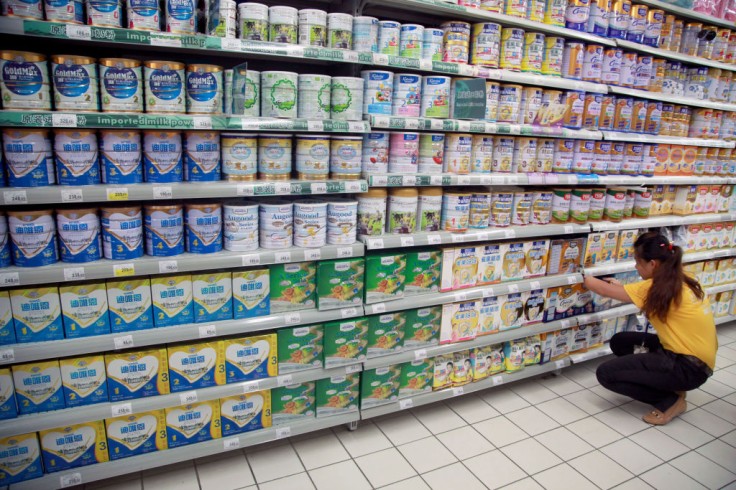
Abbott Laboratories announced on Thursday that it was recalling powdered baby formulas, including Similac after four consumers complained about Cronobacter sakazakii bacteria or Salmonella Newport in infants who consumed the products.
According to Reuters, Abbott will also recall Alimentum and EleCare baby formulas manufactured in the Sturgis plant.
FDA Advice on Baby Formula Recall
Meanwhile, the US Food and Drug Administration (FDA) announced that they are investigating consumer complaints regarding the Cronobacter sakazakii bacteria or Salmonella Newport infection in infants. The agency also alerts consumers to avoid purchasing or using certain powdered infant formula products manufactured at the facility. Abbott is also working with the FDA to initiate a voluntary recall of the potentially affected products.
The FDA issued a warning not to use Similac, EleCare, or Alimentum infant formula if, upon checking the multidigit number at the bottom of the container, the milk product contains the following information:
- The first two digits of its code are 22 through 37; and
- The container comprises codes K8, SH, or Z2; and
- The expiration date is 4-1-2022(APR 2022) or later.
Read Also: Button Batteries: 17-Month-old Baby Hugh Dies of Poisoning, Parents Call For Its Ban in Scotland
Complaints of four infant illnesses
The recall came after FDA received complaints of four infant illnesses from the different states. All the cases involved hospitalization, and the FDA said that Cronobacter may have contributed to a death. The complaints came from Minnesota, Ohio, and Texas.
FDA conducted an onsite inspection at the facility. As per the investigation, FDA found several environmental samples that were Cronobacter sakazakii positive. FDA investigators also noted several adverse inspectional observations.
Frank Yiannas, the FDA Deputy Commissioner for Food Policy and Response, expressed that the agency is "deeply concerned" about the report of the bacterial infection and is working with their partners in the investigation. He also assured the public that they would resolve the concern as "quickly as possible."
Cronobacter sakazakii
According to CDC, Cronobacter sakazakii is a gram-negative bacteria that can survive even in dry conditions. Although the natural habitat or the bacteria is unknown, it is commonly found in dry foods, including skimmed milk powder, powdered infant formula, herbal teas, and starches. It is also found in wastewater. Although the illness is rare, it is frequently lethal for infants and can pose severe threats to the elderly and people with immunocompromised conditions.
Several Cronobacter investigations have been found in powdered infant formula that might have been contaminated in the factory. In some cases, the contamination happens after the formula has been opened at home or elsewhere. Formula lids or scoops that are contaminated with Cronobacter may contaminate the milk.
Powdered infant formula is particularly vulnerable to Cronobacter as it is not sterile. According to manufacturers, it is impossible to produce sterile powdered infant formula with the current technology. A milk formula can get contaminated with bacteria if the raw materials are contaminated or if the powder comes in contact with a contaminated surface in the manufacturing environment.
Abbott clarified that the baby formula recall does not include liquid formula, powder formula, or nutrition products from other facilities. The only recalled products were those manufactured in Sturgis, Michigan.
